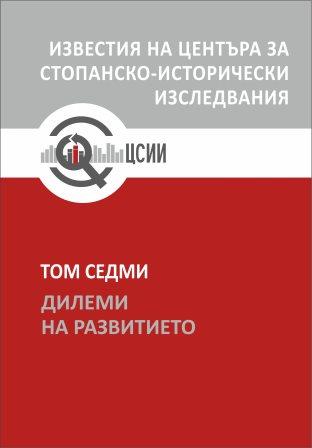Туризмът в Пловдив през ХХ век: фактори, развитие, проблеми, политики, ресурси
Tourism in Plovdiv during the 20th Century: Factors, Development, Problems, Policies, Resources
Author(s): Vidin SukarevSubject(s): History, Economy, National Economy, Economic history, Social history, Interwar Period (1920 - 1939), WW II and following years (1940 - 1949), Post-War period (1950 - 1989), Transformation Period (1990 - 2010), Public Finances, Tourism, Socio-Economic Research
Published by: Център за стопанско-исторически изследвания
Keywords: Plovdiv; 20th century; Tourism; Tourist associations; International Fair; Municipality of Plovdiv; Old Plovdiv; Cultural heritage; Natural park “Rhodopes”
Summary/Abstract: This study is based on documents from Plovdiv State archive, newspapers, scientific researches, popular publications, handbooks, memories. The results are presented in synthesized variant. Until the second half of 30s the tourism in Plovdiv was accepted as outdoor excursions, especially in the mountains. The local tourist associations were branches of Bulgarian tourist association and Youth tourist union. The biggest achievement of Plovdiv tourists until the end of Second world war was the construction of hut “Zdravets”. The new status of Plovdiv Fair as international since 1937 initiated development of “economic tourism”. A Tourist committee was created by Plovdiv municipality and took measures for city advertisement and preservation of the cultural heritage. Unfortunately, the war ended these promising activities. Several years of economy transformations and postwar crises followed the coup d’état on 9 September 1944. The development of International fair and the preservation of cultural heritage, the main tourist resources, restarted at the end of 40s and especially in 50s. Other important area of investments was the near territory of Rhodopes. Different trade deficits and stock delivery problems accompanied the tourism during the communist regime. The termination of private entrepreneurship put a continuous trend of reduce or slow increase of tourist establishments. At the end of 1989, the beds in hotels were approximately 3000 but the Fair needed not less than 15000. The rest were supplemented by private accommodations – a paradox for socialist state and economy. Despite such disadvantages, Plovdiv was awarded with European gold medal for preservation of cultural heritage in 1979 and hosted three World EXPOs (1981, 1985, 1991). During the decade of democratic changes, last of the 20th century and this research, Plovdiv confirmed its importance as a center of cultural and event tourism. The International fair multiplied its exhibitions, the State hotels were privatized, the number of private tourist venues grew rapidly. Plovdiv municipality was the main contributing authority throughout the whole period.
Journal: Известия на Центъра за стопанско-исторически изследвания
- Issue Year: VII/2022
- Issue No: 1
- Page Range: 393-403
- Page Count: 11
- Language: Bulgarian

